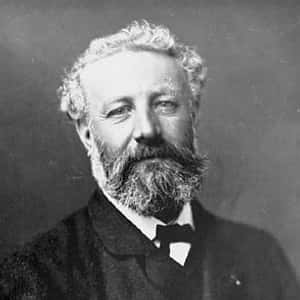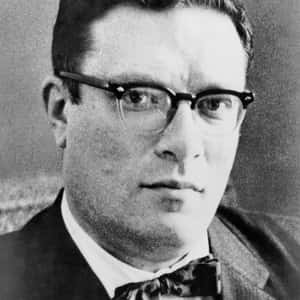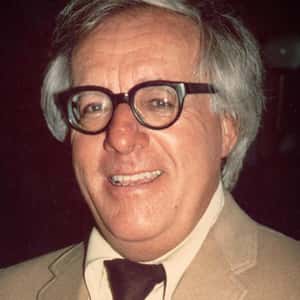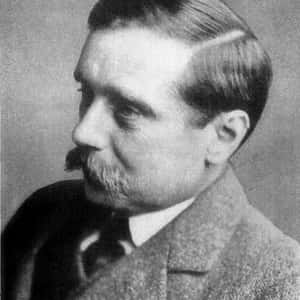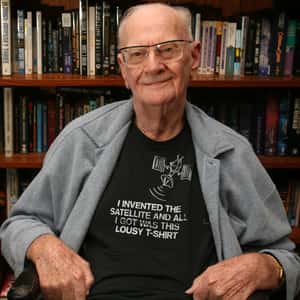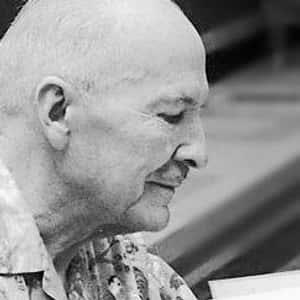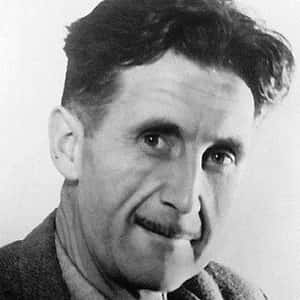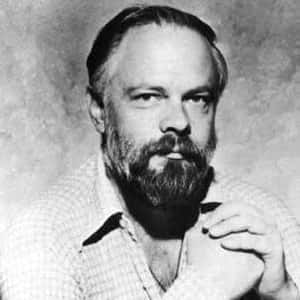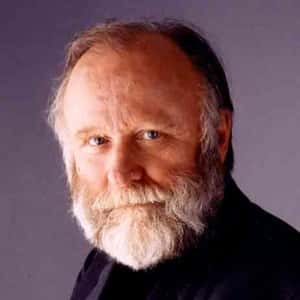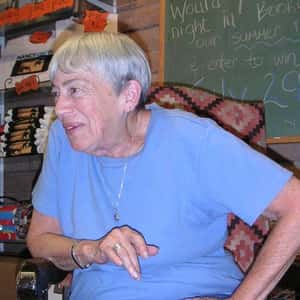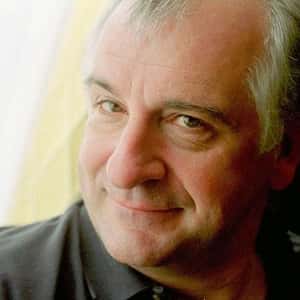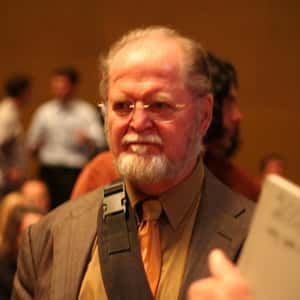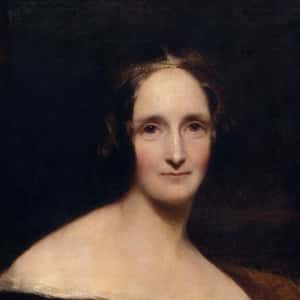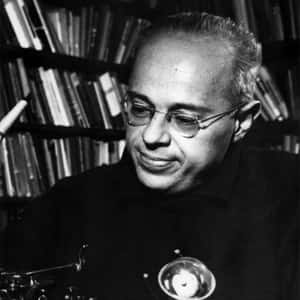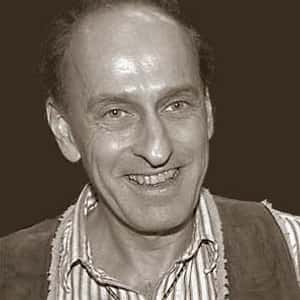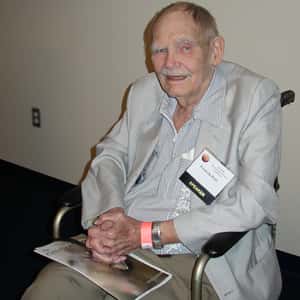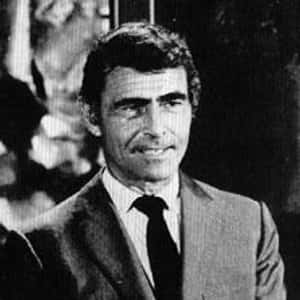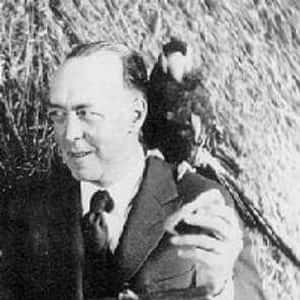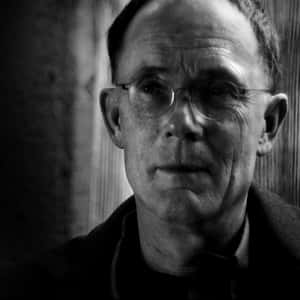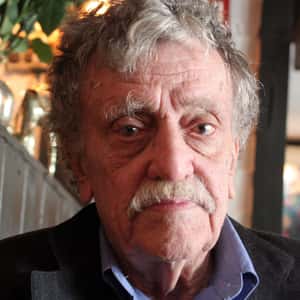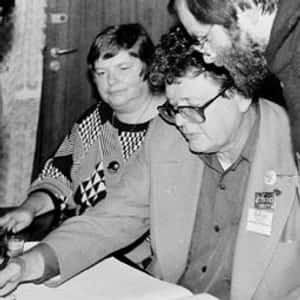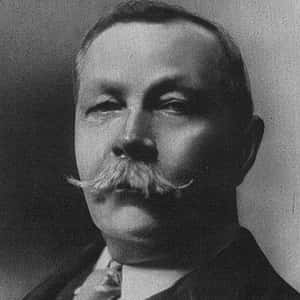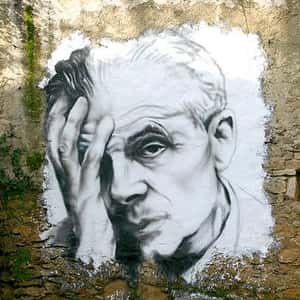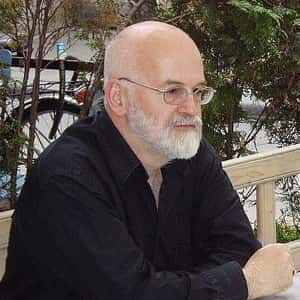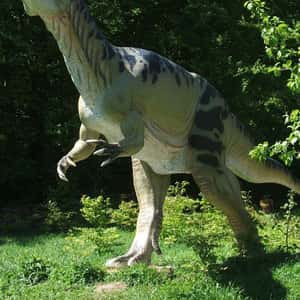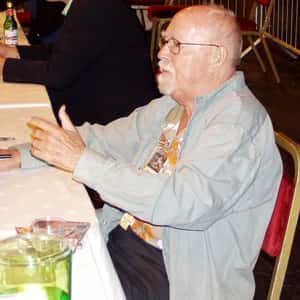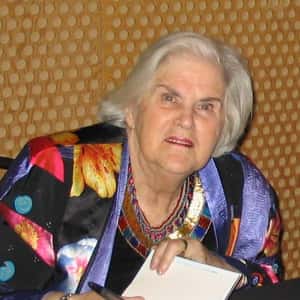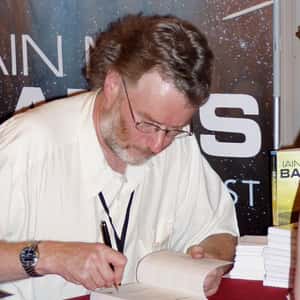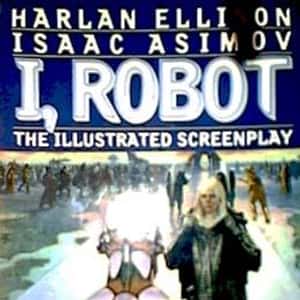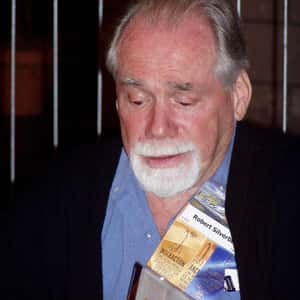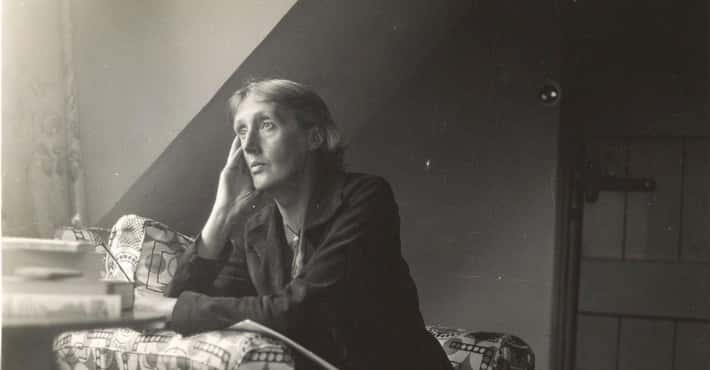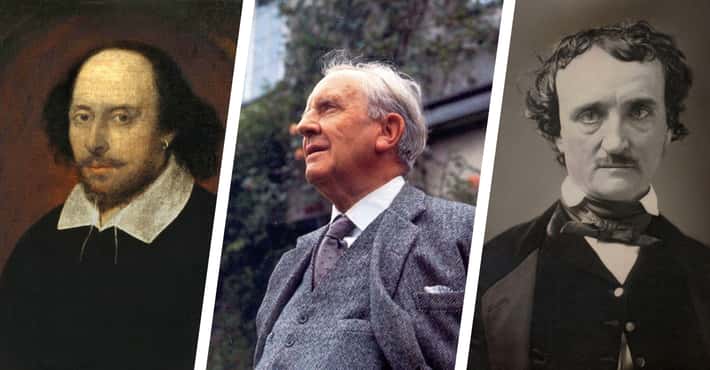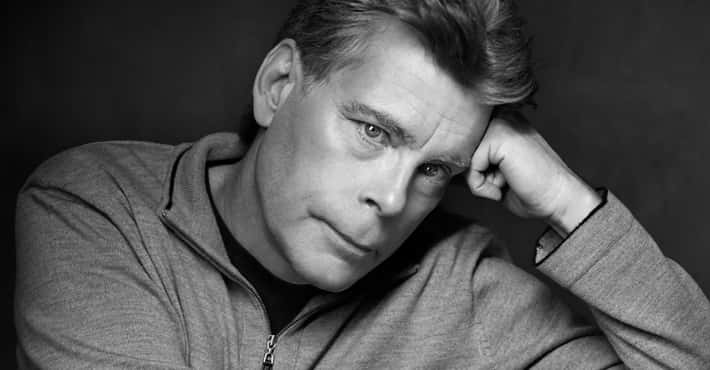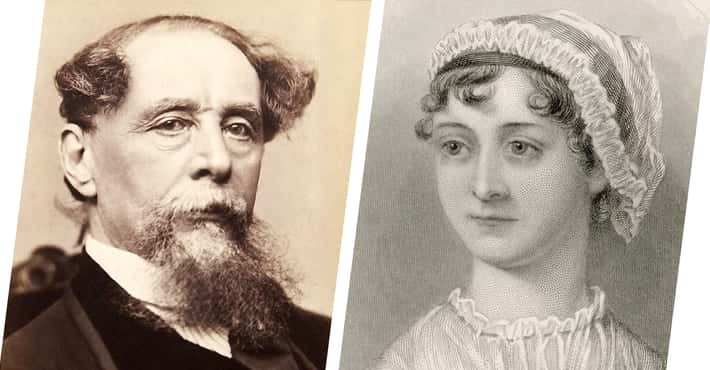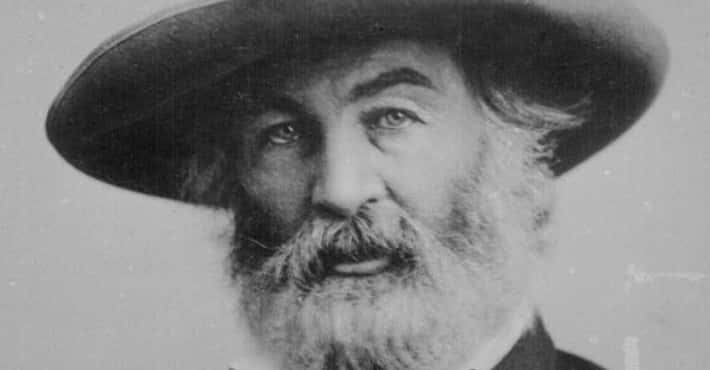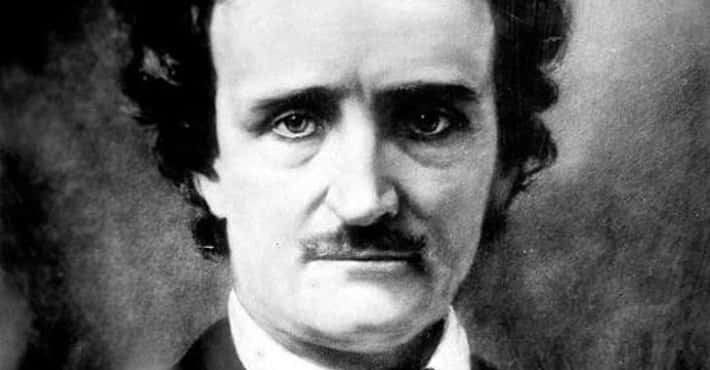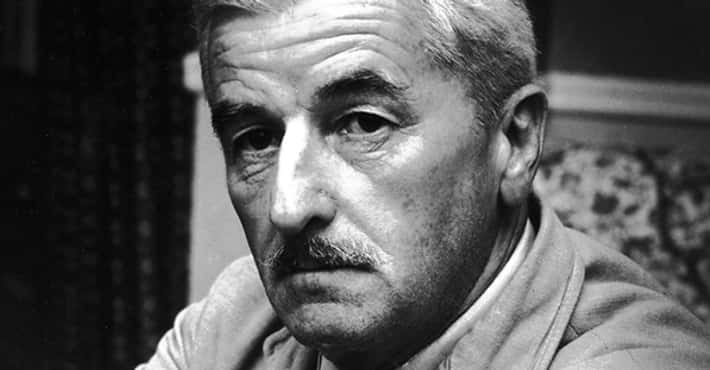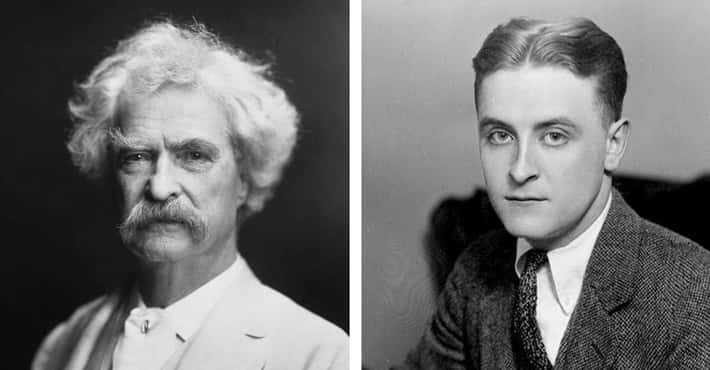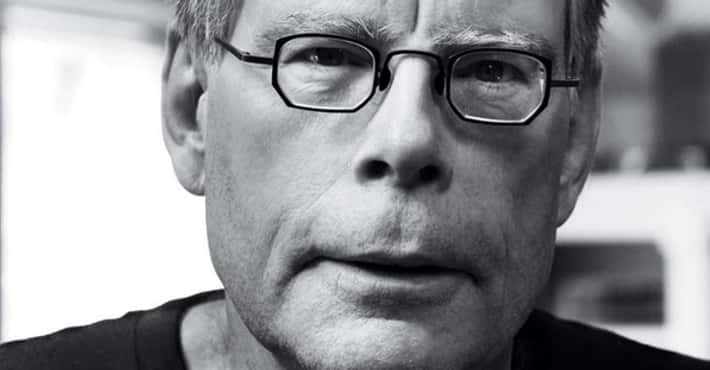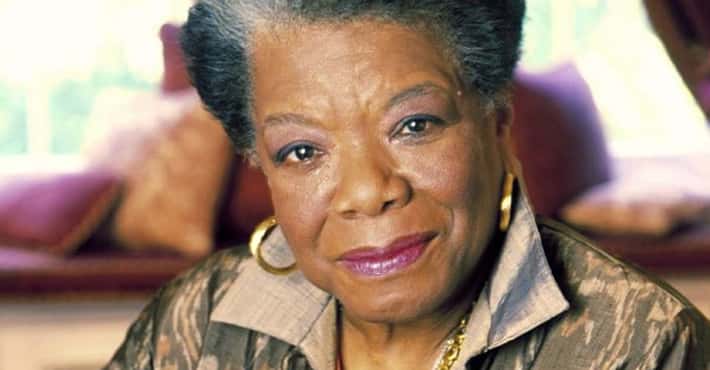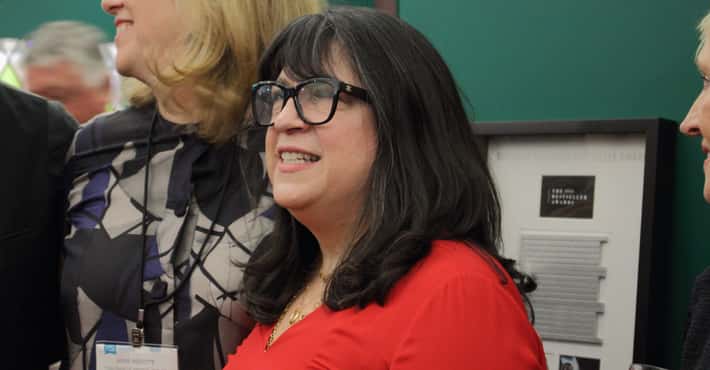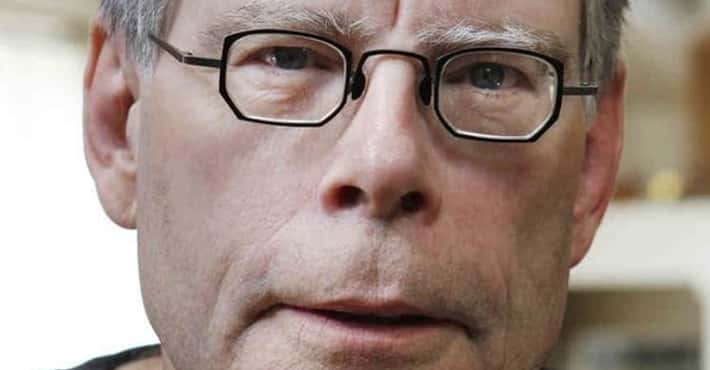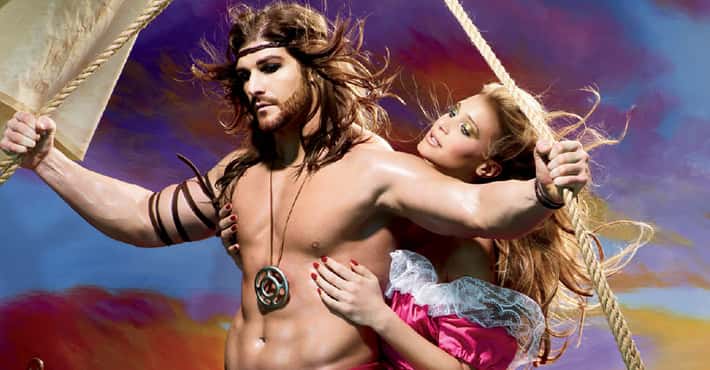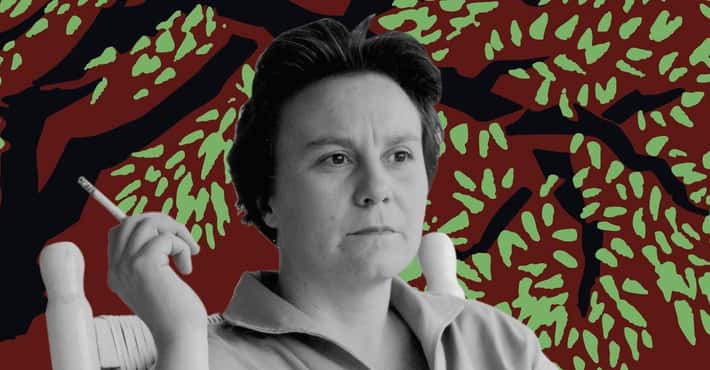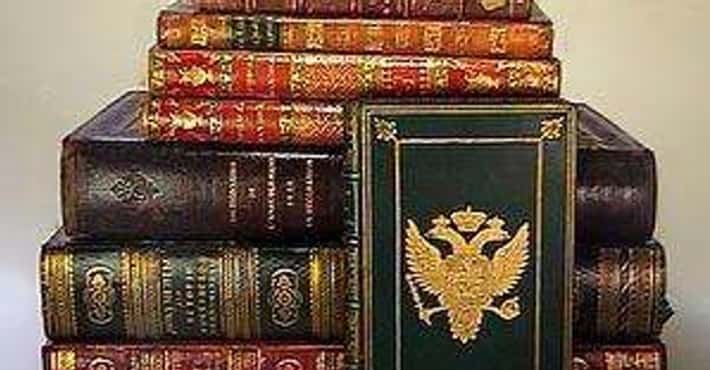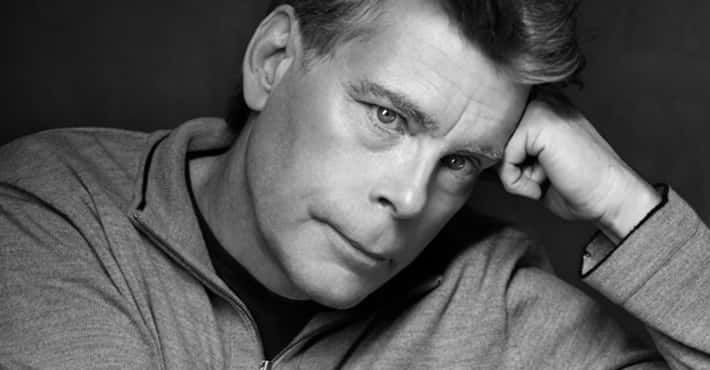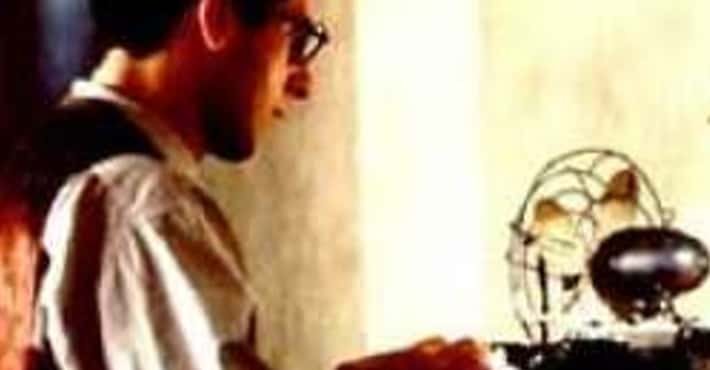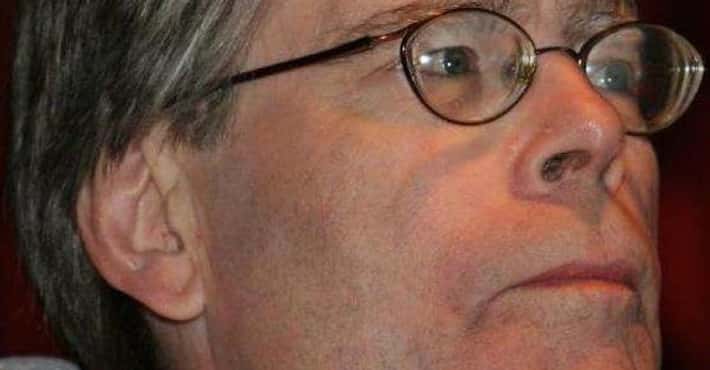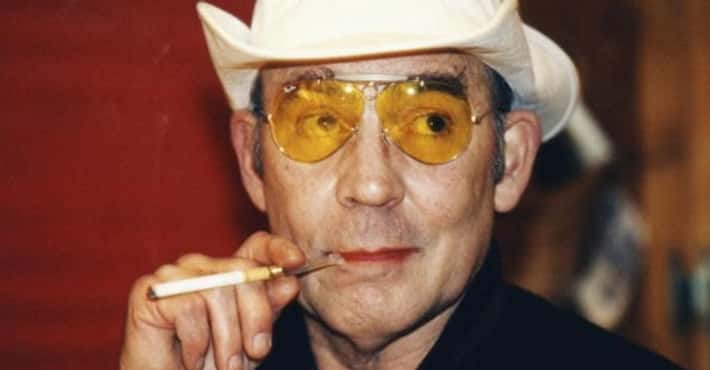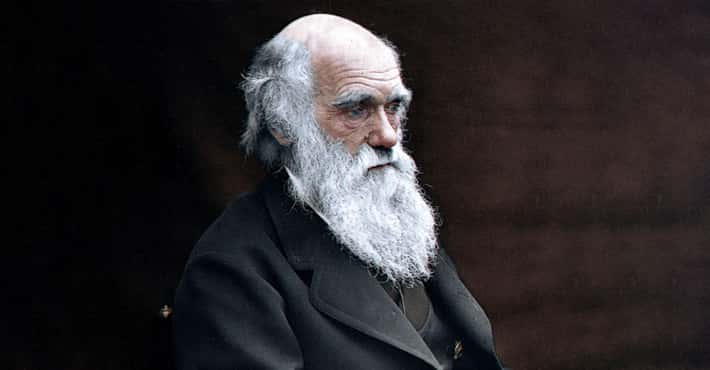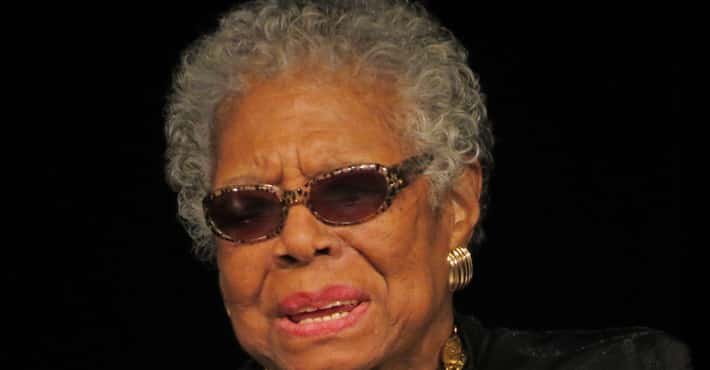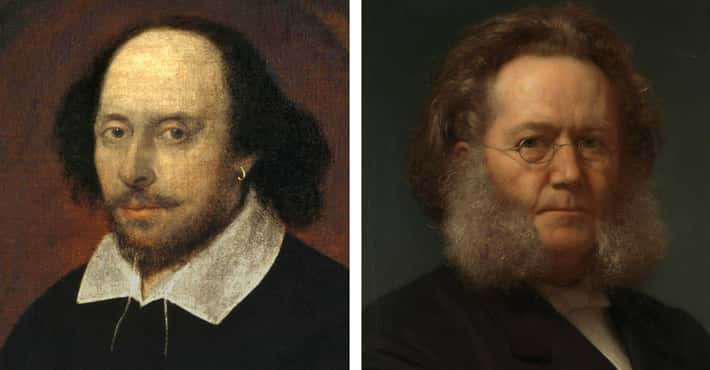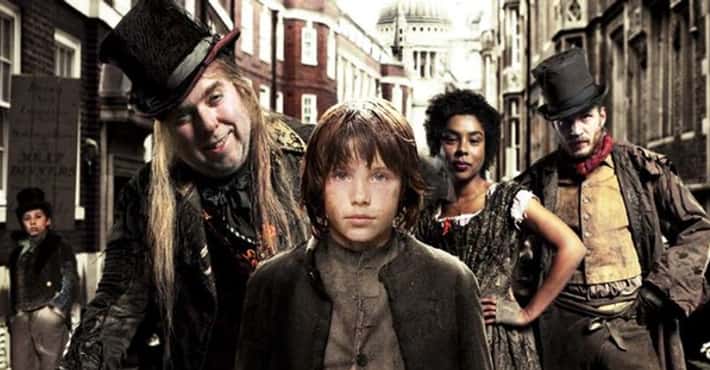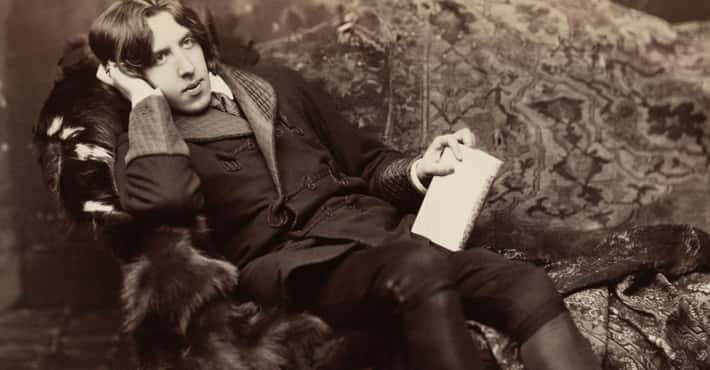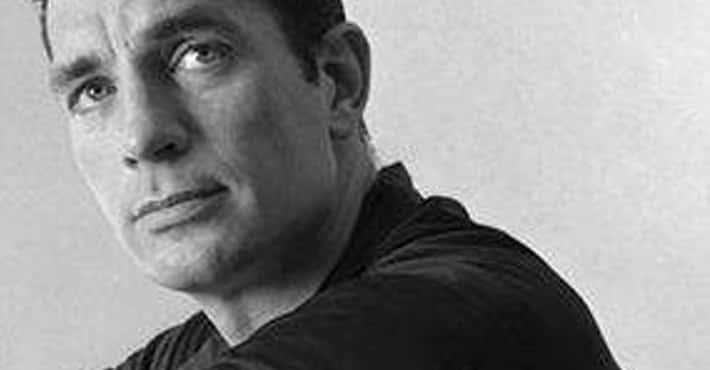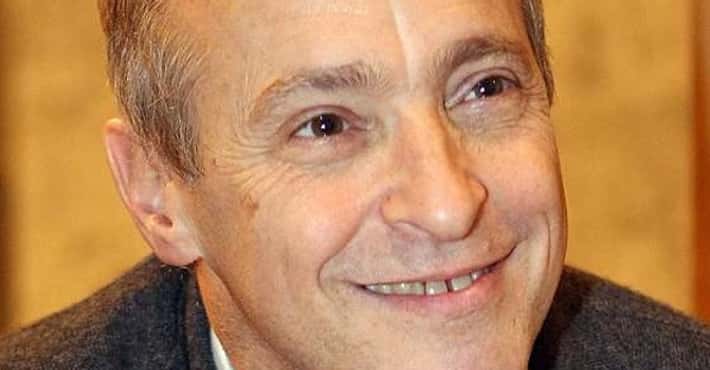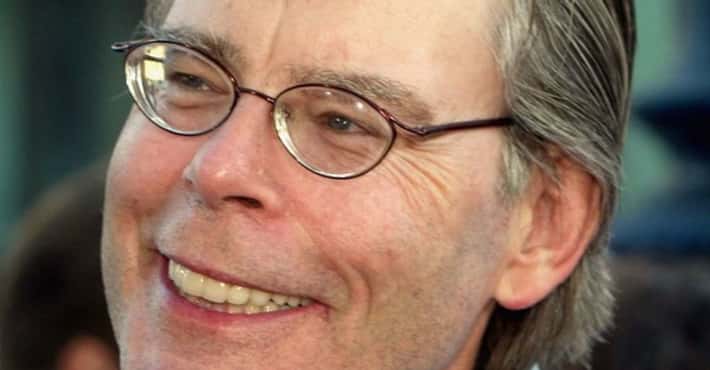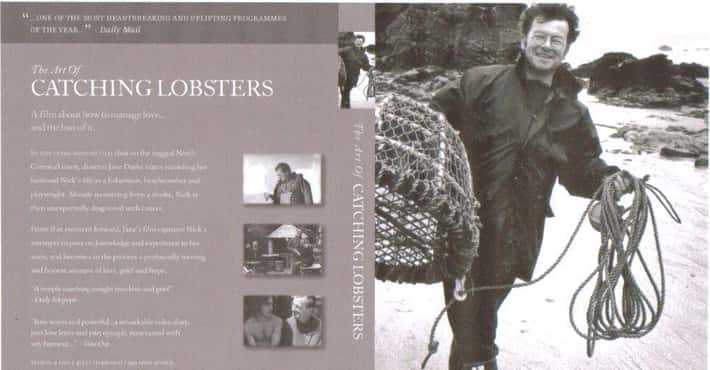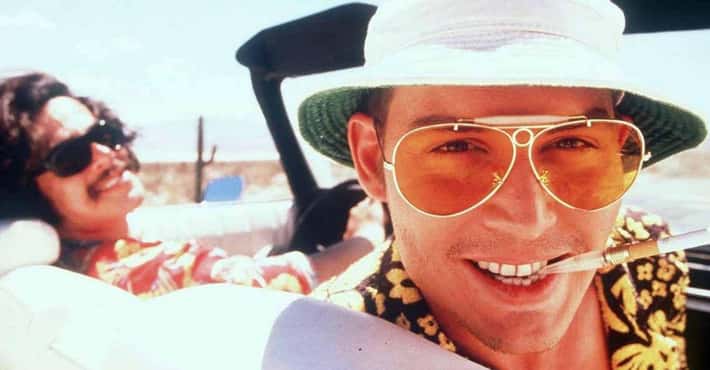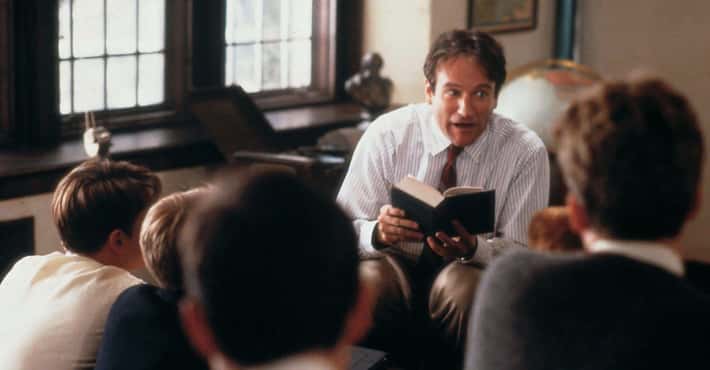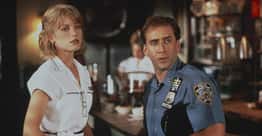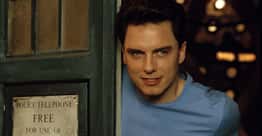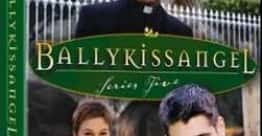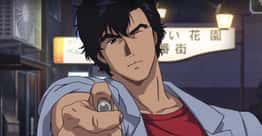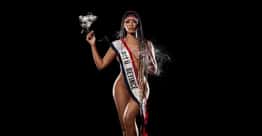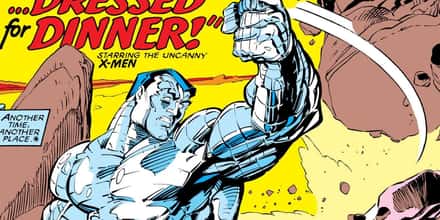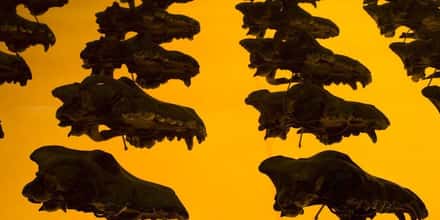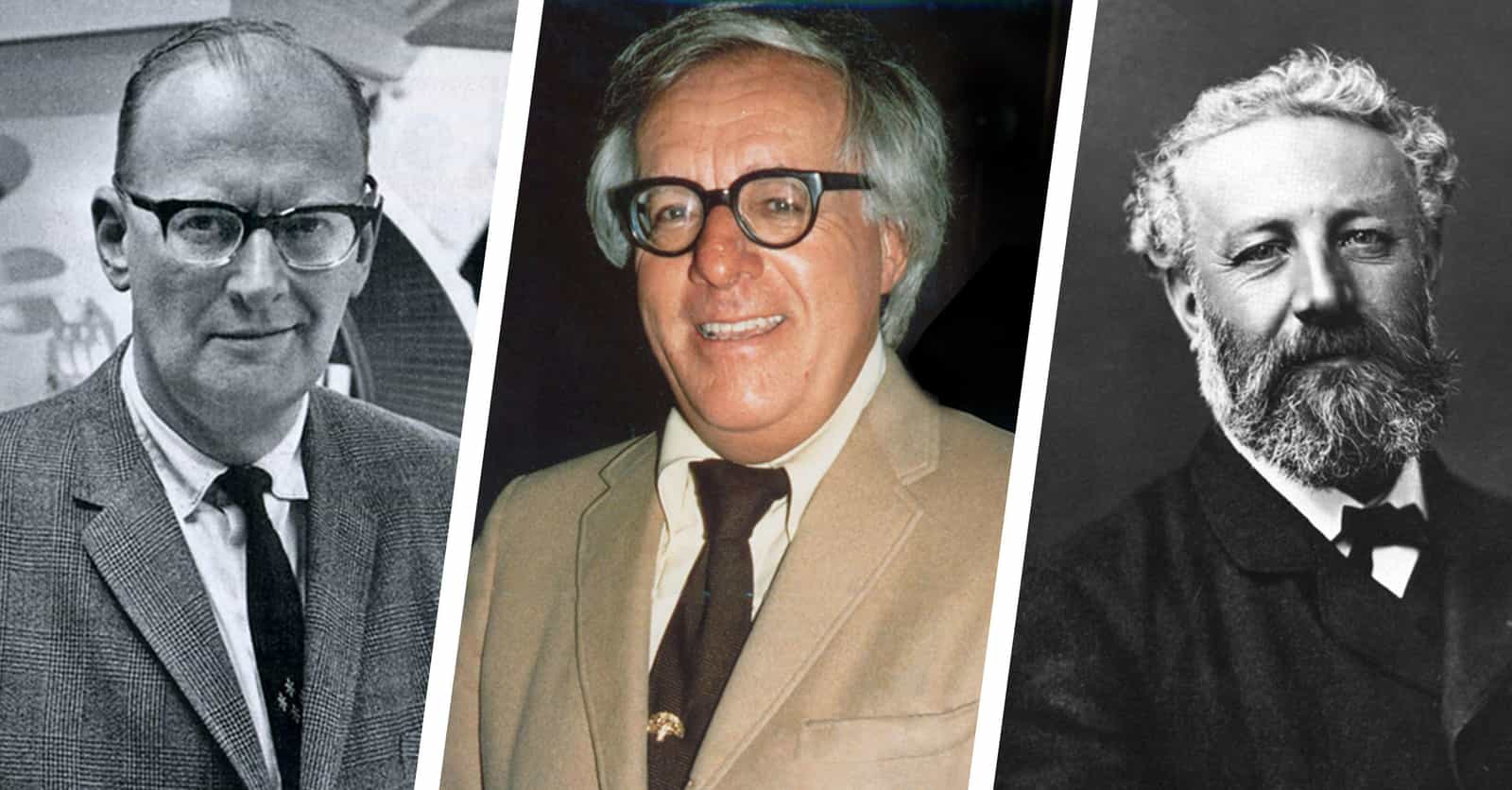
The Best Science-Fiction Authors
Ranked By
162.7K votes
15.6K voters
45 reranks
Voting Rules
Author of science fiction or any sub-genre
- Around the World in Eighty Days, Journey to the Center of the Earth, The Mysterious IslandJules Gabriel Verne (; French: [ʒyl vɛʁn]; 8 February 1828 – 24 March 1905) was a French novelist, poet, and playwright. Verne's collaboration with the publisher Pierre-Jules Hetzel led to the creation of the Voyages extraordinaires, a widely popular series of scrupulously researched adventure novels including Journey to the Center of the Earth (1864), Twenty Thousand Leagues Under the Sea (1870), and Around the World in Eighty Days (1873). Verne is generally considered a major literary author in France and most of Europe, where he has had a wide influence on the literary avant-garde and on surrealism. His reputation is markedly different in Anglophone regions, where he has often been labeled a writer of genre fiction or children's books, largely because of the highly abridged and altered translations in which his novels have often been printed.Verne has been the second most-translated author in the world since 1979, ranking between Agatha Christie and William Shakespeare. He has sometimes been called the "Father of Science Fiction", a title that has also been given to H. G. Wells, Mary Shelley, and Hugo Gernsback.
- I, Robot, FoundationIsaac Asimov (; c. January 2, 1920 – April 6, 1992) was an American writer and professor of biochemistry at Boston University. He was known for his works of science fiction and popular science. Asimov was a prolific writer who wrote or edited more than 500 books and an estimated 90,000 letters and postcards. His books have been published in 9 of the 10 major categories of the Dewey Decimal Classification.Asimov wrote hard science fiction. Along with Robert A. Heinlein and Arthur C. Clarke, Asimov was considered one of the "Big Three" science fiction writers during his lifetime. Asimov's most famous work is the "Foundation" series, the first three books of which won the one-time Hugo Award for "Best All-Time Series" in 1966. His other major series are the "Galactic Empire" series and the Robot series. The Galactic Empire novels are set in earlier history of the same fictional universe as the Foundation series. Later, with Foundation and Earth (1986), he linked this distant future to the Robot stories, creating a unified "future history" for his stories much like those pioneered by Robert A. Heinlein and previously produced by Cordwainer Smith and Poul Anderson. He also wrote hundreds of short stories, including the social science fiction novelette "Nightfall", which in 1964 was voted the best short science fiction story of all time by the Science Fiction Writers of America. Asimov wrote the Lucky Starr series of juvenile science-fiction novels using the pen name Paul French.Asimov also wrote mysteries and fantasy, as well as much nonfiction. Most of his popular science books explain concepts in a historical way, going as far back as possible to a time when the science in question was at its simplest stage. Examples include Guide to Science, the three-volume set Understanding Physics, and Asimov's Chronology of Science and Discovery. He wrote on numerous other scientific and non-scientific topics, such as chemistry, astronomy, mathematics, history, biblical exegesis, and literary criticism. He was president of the American Humanist Association. The asteroid 5020 Asimov, a crater on the planet Mars, a Brooklyn elementary school, and a literary award are named in his honor.
- Something Wicked This Way Comes, Fahrenheit 451, King of KingsRay Douglas Bradbury (; August 22, 1920 – June 5, 2012) was an American author and screenwriter. He worked in a variety of genres, including fantasy, science fiction, horror, and mystery fiction. Predominantly known for writing the iconic dystopian novel Fahrenheit 451 (1953), and his science-fiction and horror-story collections, The Martian Chronicles (1950), The Illustrated Man (1951), and I Sing the Body Electric (1969), Bradbury was one of the most celebrated 20th- and 21st-century American writers. While most of his best known work is in fantasy fiction, he also wrote in other genres, such as the coming-of-age novel Dandelion Wine (1957) and the fictionalized memoir Green Shadows, White Whale (1992). Recipient of numerous awards, including a 2007 Pulitzer Citation, Bradbury also wrote and consulted on screenplays and television scripts, including Moby Dick and It Came from Outer Space. Many of his works were adapted to comic book, television, and film formats. Upon his death in 2012, The New York Times called Bradbury "the writer most responsible for bringing modern science fiction into the literary mainstream".
- The Time Machine, Abbott and Costello Meet the Invisible Man, Things to ComeHerbert George Wells (21 September 1866 – 13 August 1946) was an English writer. He was prolific in many genres, writing dozens of novels, short stories, and works of social commentary, history, satire, biography, and autobiography, and even including two books on recreational war games. He is now best remembered for his science fiction novels and is often called the "father of science fiction", along with Jules Verne and Hugo Gernsback.During his own lifetime, however, he was most prominent as a forward-looking, even prophetic social critic who devoted his literary talents to the development of a progressive vision on a global scale. A futurist, he wrote a number of utopian works and foresaw the advent of aircraft, tanks, space travel, nuclear weapons, satellite television and something resembling the World Wide Web. His science fiction imagined time travel, alien invasion, invisibility, and biological engineering. Brian Aldiss referred to Wells as the "Shakespeare of science fiction". Wells rendered his works convincing by instilling commonplace detail alongside a single extraordinary assumption – dubbed “Wells’s law” – leading Joseph Conrad to hail him in 1898 as "O Realist of the Fantastic!". His most notable science fiction works include The Time Machine (1895), The Island of Doctor Moreau (1896), The Invisible Man (1897), The War of the Worlds (1898) and the military science fiction The War in the Air (1907). Wells was nominated for the Nobel Prize in Literature four times.Wells's earliest specialised training was in biology, and his thinking on ethical matters took place in a specifically and fundamentally Darwinian context. He was also from an early date an outspoken socialist, often (but not always, as at the beginning of the First World War) sympathising with pacifist views. His later works became increasingly political and didactic, and he wrote little science fiction, while he sometimes indicated on official documents that his profession was that of journalist. Novels such as Kipps and The History of Mr Polly, which describe lower-middle-class life, led to the suggestion that he was a worthy successor to Charles Dickens, but Wells described a range of social strata and even attempted, in Tono-Bungay (1909), a diagnosis of English society as a whole. Wells was a diabetic and co-founded the charity The Diabetic Association (known today as Diabetes UK) in 1934.
- 2001: A Space Odyssey, 2010, 2001: A Space OdysseySir Arthur Charles Clarke (16 December 1917 – 19 March 2008) was a British science fiction writer, science writer and futurist, inventor, undersea explorer, and television series host. He co-wrote the screenplay for the 1968 film 2001: A Space Odyssey, one of the most influential films of all time. Clarke was a science writer who was an avid populariser of space travel and a futurist of uncanny ability. He wrote over a dozen books and many essays for popular magazines. In 1961 he received the Kalinga Prize, a UNESCO award for popularising science. Clarke's science and science fiction writings earned him the moniker "Prophet of the Space Age". His science fiction earned him a number of Hugo and Nebula awards, which along with a large readership made him one of the towering figures of science fiction. For many years Clarke, Robert Heinlein and Isaac Asimov were known as the "Big Three" of science fiction.Clarke was a lifelong proponent of space travel. In 1934, while still a teenager, he joined the British Interplanetary Society. In 1945, he proposed a satellite communication system using geostationary orbits. He was the chairman of the British Interplanetary Society from 1946–1947 and again in 1951–1953.Clarke emigrated from England to Sri Lanka (formerly Ceylon) in 1956, to pursue his interest in scuba diving. That year he discovered the underwater ruins of the ancient Koneswaram temple in Trincomalee. Clarke augmented his popularity in the 1980s, as the host of television shows such as Arthur C. Clarke's Mysterious World. He lived in Sri Lanka until his death.Clarke was appointed Commander of the Order of the British Empire (CBE) in 1989 "for services to British cultural interests in Sri Lanka". He was knighted in 1998 and was awarded Sri Lanka's highest civil honour, Sri Lankabhimanya, in 2005.
- Stranger in a Strange Land, Starship Troopers, The Moon Is a Harsh MistressRobert Anson Heinlein (; July 7, 1907 – May 8, 1988) was an American science-fiction author, aeronautical engineer, and retired Naval officer. Sometimes called the "dean of science fiction writers", he was among the first to emphasize scientific accuracy in his fiction, and was thus a pioneer of the subgenre of hard science fiction. His published works, both fiction and non-fiction, express admiration for competence and emphasize the value of critical thinking. His work continues to have an influence on the science-fiction genre, and on modern culture more generally. Heinlein became one of the first American science-fiction writers to break into mainstream magazines such as The Saturday Evening Post in the late 1940s. He was one of the best-selling science-fiction novelists for many decades, and he, Isaac Asimov, and Arthur C. Clarke are often considered the "Big Three" of English-language science fiction authors. Notable Heinlein works include Stranger in a Strange Land, Starship Troopers (which helped mould the space marine and mecha archetypes) and The Moon Is a Harsh Mistress. His work sometimes had controversial aspects, such as plural marriage in The Moon is a Harsh Mistress, militarism in Starship Troopers and technologically competent women characters that were strong and independent, yet often stereotypically feminine – such as Friday. A writer also of numerous science-fiction short stories, Heinlein was one of a group of writers who came to prominence under the editorship (1937–1971) of John W. Campbell at Astounding Science Fiction magazine, though Heinlein denied that Campbell influenced his writing to any great degree. Heinlein used his science fiction as a way to explore provocative social and political ideas, and to speculate how progress in science and engineering might shape the future of politics, race, religion, and sex. Within the framework of his science-fiction stories, Heinlein repeatedly addressed certain social themes: the importance of individual liberty and self-reliance, the nature of sexual relationships, the obligation individuals owe to their societies, the influence of organized religion on culture and government, and the tendency of society to repress nonconformist thought. He also speculated on the influence of space travel on human cultural practices. Heinlein was named the first Science Fiction Writers Grand Master in 1974. Four of his novels won Hugo Awards. In addition, fifty years after publication, seven of his works were awarded "Retro Hugos"—awards given retrospectively for works that were published before the Hugo Awards came into existence. In his fiction, Heinlein coined terms that have become part of the English language, including "grok", "waldo", and "speculative fiction", as well as popularizing existing terms like "TANSTAAFL", "pay it forward", and "space marine". He also anticipated mechanical computer-aided design with "Drafting Dan" and described a modern version of a waterbed in his novel Beyond This Horizon, though he never patented nor built one. In the first chapter of the novel Space Cadet he anticipated the cell-phone, 35 years before Motorola invented the technology. Several of Heinlein's works have been adapted for film and television.
- Nineteen Eighty-Four, Animal Farm, Down and Out in Paris and LondonEric Arthur Blair (25 June 1903 – 21 January 1950), better known by his pen name George Orwell, was an English novelist and essayist, journalist and critic, whose work is characterised by lucid prose, awareness of social injustice, opposition to totalitarianism, and outspoken support of democratic socialism.As a writer, Orwell produced literary criticism and poetry, fiction and polemical journalism; and is best known for the allegorical novella Animal Farm (1945) and the dystopian novel Nineteen Eighty-Four (1949). His non-fiction works, including The Road to Wigan Pier (1937), documenting his experience of working-class life in the north of England, and Homage to Catalonia (1938), an account of his experiences soldiering for the Republican faction of the Spanish Civil War (1936–1939), are as critically respected as his essays on politics and literature, language and culture. In 2008, The Times ranked George Orwell second among "The 50 greatest British writers since 1945".Orwell's work remains influential in popular culture and in political culture, and the adjective "Orwellian" – describing totalitarian and authoritarian social practices – is part of the English language, like many of his neologisms, such as "Big Brother", "Thought Police", and "Hate week", "Room 101", the "memory hole", and "Newspeak", "doublethink" and "proles", "unperson" and "thoughtcrime".
- Do Androids Dream of Electric Sheep?, The Man in the High Castle, UbikPhilip Kindred Dick (December 16, 1928 – March 2, 1982) was an American writer known for his work in science fiction. His work explored philosophical, social, and political themes, with stories dominated by monopolistic corporations, alternative universes, authoritarian governments, and altered states of consciousness. His writing also reflected his interest in metaphysics and theology, and often drew upon his life experiences, addressing the nature of reality, identity, drug abuse, schizophrenia, and transcendental experiences. Dick produced 44 published novels and approximately 121 short stories, most of which appeared in science fiction magazines during his lifetime.Born in Chicago, Illinois, Dick moved to the San Francisco Bay Area with his family at a young age. He began publishing science fiction stories in 1951, at the age of 22. His stories initially found little commercial success, but his 1962 alternative history novel The Man in the High Castle earned Dick early acclaim, including a Hugo Award for Best Novel. He followed with science fiction novels such as Do Androids Dream of Electric Sheep? (1968) and Ubik (1969). His 1974 novel Flow My Tears, the Policeman Said won the John W. Campbell Memorial Award for Best Science Fiction Novel. Following a series of paranormal experiences in February 1974, Dick's work engaged more explicitly with issues of theology, philosophy, and the nature of reality, as in such novels as A Scanner Darkly (1977) and VALIS (1981). A collection of his nonfiction writing on these themes was published posthumously as The Exegesis of Philip K. Dick (2011). He died in 1982 in Santa Ana, California, at the age of 53, due to complications from a stroke. A variety of popular Hollywood films based on Dick's works have been produced, including Blade Runner (1982), Total Recall (adapted twice: in 1990 and in 2012), Minority Report (2002), A Scanner Darkly (2006), and The Adjustment Bureau (2011). Meanwhile, the novel The Man in the High Castle (1962) was made into a multi-season television series by Amazon, starting in 2015. In 2005, Time magazine named Ubik (1969) one of the hundred greatest English-language novels published since 1923. In 2007, Dick became the first science fiction writer ever to be included in The Library of America series.
- Dune, Dune Messiah, The Lazarus EffectFranklin Patrick Herbert Jr. (October 8, 1920 – February 11, 1986) was an American science fiction author best known for the 1965 novel Dune and its five sequels. Though he became famous for his novels, he also wrote short stories and worked as a newspaper journalist, photographer, book reviewer, ecological consultant, and lecturer. The Dune saga, set in the distant future, and taking place over millennia, explores complex themes, such as the long-term survival of the human species, human evolution, planetary science and ecology, and the intersection of religion, politics, economics and power in a future where humanity has long since developed interstellar travel and settled many thousands of worlds. Dune is the best-selling science fiction novel of all time, and the whole series is widely considered to be among the classics of the genre.
- The Left Hand of Darkness, The Dispossessed, A Wizard of EarthseaUrsula Kroeber Le Guin (; October 21, 1929 – January 22, 2018) was an American author. She is best known for her works of speculative fiction, including science fiction works set in her Hainish universe, and the Earthsea fantasy series. She was first published in 1959, and her literary career spanned nearly sixty years, yielding more than twenty novels and over a hundred short stories, in addition to poetry, literary criticism, translations, and children's books. Frequently described as an author of science fiction, Le Guin has also been called a "major voice in American Letters", and herself said she would prefer to be known as an "American novelist",Le Guin was born in Berkeley, California, to author Theodora Kroeber and anthropologist Alfred Louis Kroeber. Having earned a master's degree in French, Le Guin began doctoral studies, but abandoned these after her marriage in 1953 to historian Charles Le Guin. She began writing full-time in the late 1950s, and achieved major critical and commercial success with A Wizard of Earthsea (1968) and The Left Hand of Darkness (1969), which have been described by Harold Bloom as her masterpieces. For the latter volume Le Guin won both the Hugo and Nebula awards for best novel, becoming the first woman to do so. Several more works set in Earthsea or the Hainish universe followed; others included books set in the fictional country of Orsinia, several works for children, and many anthologies. Le Guin was strongly influenced by cultural anthropology, Taoism, feminism, and the writings of Carl Jung. Many of her stories used anthropologists or cultural observers as protagonists, and Taoist ideas about balance and equilibrium have been identified in several works. Le Guin often subverted typical speculative fiction tropes, such as through her use of dark-skinned protagonists in Earthsea, and also used unusual stylistic or structural devices in books such as the experimental work Always Coming Home (1985). Social and political themes, including gender, sexuality, and coming of age were prominent in her writing, and she explored alternative political structures in many stories, notably in the parable "The Ones Who Walk Away from Omelas" (1973) and the utopian novel The Dispossessed (1974). Le Guin's writing was enormously influential in the field of speculative fiction, and has been the subject of intense critical attention. She received numerous accolades, including eight Hugos, six Nebulas, and twenty-two Locus Awards, and in 2003 became only the second woman honored as a Grand Master of the Science Fiction and Fantasy Writers of America. The U.S. Library of Congress named her a Living Legend in 2000, and in 2014, she won the National Book Foundation Medal for Distinguished Contribution to American Letters. Le Guin influenced many other authors, including Booker Prize winner Salman Rushdie, David Mitchell, Neil Gaiman, and Iain Banks. After her death in 2018, critic John Clute wrote that Le Guin had "presided over American science fiction for nearly half a century", while author Michael Chabon referred to her as the "greatest American writer of her generation".
- The Hitchhiker's Guide to the Galaxy, The Hitchhiker's Guide to the Galaxy, So LongHitchhikers "trilogy", Dirk GentlyDouglas Noel Adams (11 March 1952 – 11 May 2001) was an English author, screenwriter, essayist, humorist, satirist and dramatist. Adams was author of The Hitchhiker's Guide to the Galaxy, which originated in 1978 as a BBC radio comedy before developing into a "trilogy" of five books that sold more than 15 million copies in his lifetime and generated a television series, several stage plays, comics, a video game, and in 2005 a feature film. Adams's contribution to UK radio is commemorated in The Radio Academy's Hall of Fame.Adams also wrote Dirk Gently's Holistic Detective Agency (1987) and The Long Dark Tea-Time of the Soul (1988), and co-wrote The Meaning of Liff (1983), The Deeper Meaning of Liff (1990), Last Chance to See (1990), and three stories for the television series Doctor Who; he also served as script editor for the show's seventeenth season in 1979. He also co-wrote the Monty Python sketch “Patient Abuse” which appeared in the final episode of Monty Python's Flying Circus. A posthumous collection of his works, including an unfinished novel, was published as The Salmon of Doubt in 2002. Adams was an advocate for environmentalism and conservation, a lover of fast cars, technological innovation and the Apple Macintosh, and a self-proclaimed radical atheist.
- Ringworld, Lucifer's Hammer, The Mote in God's EyeLaurence van Cott Niven (; born April 30, 1938) is an American science fiction writer. His best-known works are Ringworld (1970), which received Hugo, Locus, Ditmar, Nebula awards, and The Mote in God's Eye (1974). The Science Fiction and Fantasy Writers of America named him the 2015 recipient of the Damon Knight Memorial Grand Master Award. His work is primarily hard science fiction, using big science concepts and theoretical physics. It also often includes elements of detective fiction and adventure stories. His fantasy includes the series The Magic Goes Away, rational fantasy dealing with magic as a non-renewable resource.
- Frankenstein, Son of Frankenstein, Political JusticeMary Wollstonecraft Shelley (UK: , US: ; née Godwin; 30 August 1797 – 1 February 1851) was an English novelist who wrote the Gothic novel Frankenstein; or, The Modern Prometheus (1818). She also edited and promoted the works of her husband, the Romantic poet and philosopher Percy Bysshe Shelley. Her father was the political philosopher William Godwin, and her mother was the philosopher and feminist Mary Wollstonecraft. After Wollstonecraft's death less than a month after her daughter Mary was born, Mary was raised by Godwin, who was able to provide his daughter with a rich, if informal, education, encouraging her to adhere to his own anarchist political theories. When Mary was four, her father married a neighbour, with whom, as her stepmother, Mary came to have a troubled relationship.In 1814, Mary began a romance with one of her father's political followers, Percy Bysshe Shelley, who was already married. Together with Mary's stepsister Claire Clairmont, Mary and Shelley left for France and travelled through Europe. Upon their return to England, Mary was pregnant with Percy's child. Over the next two years, she and Percy faced ostracism, constant debt, and the death of their prematurely born daughter. They married in late 1816, after the suicide of Percy Shelley's first wife, Harriet. In 1816, the couple famously spent a summer with Lord Byron, John William Polidori, and Claire Clairmont near Geneva, Switzerland, where Mary conceived the idea for her novel Frankenstein. The Shelleys left Britain in 1818 for Italy, where their second and third children died before Mary Shelley gave birth to her last and only surviving child, Percy Florence Shelley. In 1822, her husband drowned when his sailing boat sank during a storm near Viareggio. A year later, Mary Shelley returned to England and from then on devoted herself to the upbringing of her son and a career as a professional author. The last decade of her life was dogged by illness, most likely caused by the brain tumour which killed her at age 53. Until the 1970s, Mary Shelley was known mainly for her efforts to publish her husband's works and for her novel Frankenstein, which remains widely read and has inspired many theatrical and film adaptations. Recent scholarship has yielded a more comprehensive view of Mary Shelley's achievements. Scholars have shown increasing interest in her literary output, particularly in her novels, which include the historical novels Valperga (1823) and Perkin Warbeck (1830), the apocalyptic novel The Last Man (1826), and her final two novels, Lodore (1835) and Falkner (1837). Studies of her lesser-known works, such as the travel book Rambles in Germany and Italy (1844) and the biographical articles for Dionysius Lardner's Cabinet Cyclopaedia (1829–1846), support the growing view that Mary Shelley remained a political radical throughout her life. Mary Shelley's works often argue that cooperation and sympathy, particularly as practised by women in the family, were the ways to reform civil society. This view was a direct challenge to the individualistic Romantic ethos promoted by Percy Shelley and the Enlightenment political theories articulated by her father, William Godwin.
- Solaris, Memoirs Found in a Bathtub, FiascoStanisław Herman Lem (Polish: [staˈɲiswaf ˈlɛm] (listen); 12 or 13 September 1921 – 27 March 2006) was a Polish writer of science fiction, philosophy, and satire, and a trained physician. Lem's books have been translated into 41 languages and have sold over 45 million copies. From the 1950s to 2000s, he published many books, both science fiction and philosophical/futurological. He is best known as the author of the 1961 novel Solaris, which has been made into a feature film three times. In 1976, Theodore Sturgeon wrote that Lem was the most widely read science fiction writer in the world.Lem's works explore philosophical themes through speculation on technology, the nature of intelligence, the impossibility of communication with and understanding of alien intelligence, despair about human limitations, and humanity's place in the universe. They are sometimes presented as fiction, but others are in the form of essays or philosophical books. Translating his works is difficult due to passages with elaborate word formation, idiomatic wordplay, alien or robotic poetry, and puns.
- The Chronicles of Amber, Lord of Light, Isle of the DeadRoger Joseph Zelazny (May 13, 1937 – June 14, 1995) was an American poet and writer of fantasy and science fiction short stories and novels, best known for The Chronicles of Amber. He won the Nebula Award three times (out of 14 nominations) and the Hugo Award six times (also out of 14 nominations), including two Hugos for novels: the serialized novel ...And Call Me Conrad (1965), subsequently published under the title This Immortal (1966) and then the novel Lord of Light (1967).
- The Space Merchants, Man Plus, GatewayFrederik George Pohl Jr. (; November 26, 1919 – September 2, 2013) was an American science-fiction writer, editor, and fan, with a career spanning more than 75 years—from his first published work, the 1937 poem "Elegy to a Dead Satellite: Luna", to the 2011 novel All the Lives He Led and articles and essays published in 2012.From about 1959 until 1969, Pohl edited Galaxy and its sister magazine If; the latter won three successive annual Hugo Awards as the year's best professional magazine. His 1977 novel Gateway won four "year's best novel" awards: the Hugo voted by convention participants, the Locus voted by magazine subscribers, the Nebula voted by American science-fiction writers, and the juried academic John W. Campbell Memorial Award. He won the Campbell Memorial Award again for the 1984 collection of novellas Years of the City, one of two repeat winners during the first 40 years. For his 1979 novel Jem, Pohl won a U.S. National Book Award in the one-year category Science Fiction. It was a finalist for three other year's best novel awards. He won four Hugo and three Nebula Awards, including receiving both for the 1977 novel Gateway. The Science Fiction Writers of America named Pohl its 12th recipient of the Damon Knight Memorial Grand Master Award in 1993 and he was inducted by the Science Fiction and Fantasy Hall of Fame in 1998, its third class of two dead and two living writers.Pohl won the Hugo Award for Best Fan Writer in 2010, for his blog, "The Way the Future Blogs".
- Planet of the Apes, Twilight Zone: The Movie, Seven Days in MayRodman Edward Serling (December 25, 1924 – June 28, 1975) was an American screenwriter, playwright, television producer, and narrator known for his live television dramas of the 1950s and his science-fiction anthology TV series, The Twilight Zone. Serling was active in politics, both on and off the screen, and helped form television industry standards. He was known as the "angry young man" of Hollywood, clashing with television executives and sponsors over a wide range of issues including censorship, racism, and war.
- Tarzan, the Ape Man, TarzanEdgar Rice Burroughs (September 1, 1875 – March 19, 1950) was an American fiction writer best known for his celebrated and prolific output in the adventure and science-fiction genres. Among the most notable of his creations are the jungle hero Tarzan, the heroic Mars adventurer John Carter and the fictional landmass within Earth known as Pellucidar. Burroughs' California ranch is now the center of the Tarzana neighborhood in Los Angeles.
- Neuromancer, Johnny Mnemonic, Mona Lisa OverdriveWilliam Ford Gibson (born March 17, 1948) is an American-Canadian speculative fiction writer and essayist widely credited with pioneering the science fiction subgenre known as cyberpunk. Beginning his writing career in the late 1970s, his early works were noir, near-future stories that explored the effects of technology, cybernetics, and computer networks on humans—a "combination of lowlife and high tech"—and helped to create an iconography for the information age before the ubiquity of the Internet in the 1990s. Gibson notably coined the term "cyberspace" for "widespread, interconnected digital technology" in his short story "Burning Chrome" (1982), and later popularized the concept in his acclaimed debut novel Neuromancer (1984). These early works of Gibson's have been credited with "renovating" science fiction literature in the 1980s. After expanding on the story in Neuromancer with two more novels, thus completing the dystopic Sprawl trilogy, Gibson collaborated with Bruce Sterling on the alternate history novel The Difference Engine (1990), which became an important work of the science fiction subgenre known as steampunk. In the 1990s, Gibson composed the Bridge trilogy of novels, which explored the sociological developments of near-future urban environments, postindustrial society, and late capitalism. Following the turn of the century and the events of 9/11, Gibson emerged with a string of increasingly realist novels—Pattern Recognition (2003), Spook Country (2007), and Zero History (2010)—set in a roughly contemporary world. These works saw his name reach mainstream bestseller lists for the first time. His most recent novel, The Peripheral (2014), returned to a more overt engagement with technology and recognizable science fiction concerns. In 1999, The Guardian (UK) described Gibson as "probably the most important novelist of the past two decades," while the Sydney Morning Herald (Australia) called him the "noir prophet" of cyberpunk. Throughout his career, Gibson has written more than 20 short stories and 10 critically acclaimed novels (one in collaboration), contributed articles to several major publications, and collaborated extensively with performance artists, filmmakers, and musicians. His work has been cited as influencing a variety of disciplines: academia, design, film, literature, music, cyberculture, and technology.
- Slaughterhouse-Five, Cat's Cradle, Breakfast of ChampionsKurt Vonnegut, one of America's most influential writers of the 20th century, was a figure whose work redefined the landscape of contemporary literature. Born in Indianapolis in 1922 to parents of German descent, Vonnegut came of age amidst the Great Depression, an era that was to greatly influence his perspective and later works. His early professional pursuits were not geared towards literary accomplishment; instead, he studied biochemistry at Cornell University before enlisting in the U.S. Army during World War II. Vonnegut's experiences as a soldier became a significant milestone in his life and writing. Most notably, his survival of the infamous Dresden bombing in February 1945 had a profound impact on his worldview, ultimately serving as inspiration for his most celebrated novel, Slaughterhouse-Five. This masterpiece captivated audiences by its unconventional narrative style and its fusion of historical events with science fiction elements, becoming a powerful anti-war statement. After his military service, Vonnegut attended the University of Chicago where he studied anthropology - a subject that would also permeate his future narratives. The 1960s and 1970s marked the apex of Vonnegut's literary career. Alongside Slaughterhouse-Five, his notable works included Cat's Cradle, Breakfast of Champions, and Mother Night - all of which demonstrated his ability to weave complex social commentary into compelling narratives, often infused with satirical humor and philosophical musings. Despite the gravity of his themes, Vonnegut's simple, conversational prose style made his work accessible to a wide range of readers. His death in 2007 left a lasting void in American literature, yet his legacy continues to inspire generations of readers and writers alike.
- The Broken Sword, Conflict, Conan the RebelPoul William Anderson (November 25, 1926 – July 31, 2001) was an American science fiction author who began his career in the 1940s and continued to write into the 21st century. Anderson authored several works of fantasy, historical novels, and short stories. His awards include seven Hugo Awards and three Nebula Awards.
- The Lost World, The Adventures of Sherlock Holmes, The Hound of the BaskervillesSir Arthur Conan Doyle was a British writer who achieved global acclaim primarily for his creation of the fictional detective Sherlock Holmes. Born on May 22, 1859, in Edinburgh, Scotland, he was educated at Stonyhurst School and later studied medicine at the University of Edinburgh. During this time, Doyle began writing short stories, marking the inception of his literary career. Although he initially struggled to find success as an author, Doyle's fortunes changed dramatically with the introduction of Sherlock Holmes in A Study in Scarlet, published in 1887. Holmes, with his distinctive deerstalker hat, pipe, and razor-sharp deductive reasoning, quickly captured the public's imagination. The character's popularity was so vast that, despite Doyle's attempt to kill off Holmes in The Final Problem to focus on other literary endeavors, public demand led him to resurrect the detective in subsequent stories. Beyond his contributions to detective fiction, Doyle was also known for his work in the genres of science fiction, historical novels, plays, and romances. He was a prolific writer, penning over 200 works in his lifetime. Additionally, Doyle had a deep interest in spiritualism and the paranormal, which significantly influenced his later works. His life and career were marked by a constant quest for truth, whether through the logical deductions of his famous detective or his exploration of the supernatural. Sir Arthur Conan Doyle passed away on July 7, 1930, but his legacy lives on through his enduring characters and stories.
- Brave New World, Island, Point Counter PointAldous Leonard Huxley (26 July 1894 – 22 November 1963) was an English writer and philosopher. He authored nearly fifty books—both novels and non-fiction works—as well as wide-ranging essays, narratives, and poems. Born into the prominent Huxley family, he graduated from Balliol College, Oxford with an undergraduate degree in English literature. Early in his career, he published short stories and poetry and edited the literary magazine Oxford Poetry, before going on to publish travel writing, satire, and screenplays. He spent the latter part of his life in the United States, living in Los Angeles from 1937 until his death. By the end of his life, Huxley was widely acknowledged as one of the foremost intellectuals of his time. He was nominated for the Nobel Prize in Literature seven times and was elected Companion of Literature by the Royal Society of Literature in 1962.Huxley was a humanist and pacifist. He grew interested in philosophical mysticism and universalism, addressing these subjects with works such as The Perennial Philosophy (1945)—which illustrates commonalities between Western and Eastern mysticism—and The Doors of Perception (1954)—which interprets his own psychedelic experience with mescaline. In his most famous novel Brave New World (1932) and his final novel Island (1962), he presented his vision of dystopia and utopia, respectively.
- Good Omens, Small Gods, The Colour of MagicSir Terence David John Pratchett (28 April 1948 – 12 March 2015) was an English author of fantasy novels, especially comical works. He is best known for his Discworld series of 41 novels. Pratchett's first novel, The Carpet People, was published in 1971. The first Discworld novel, The Colour of Magic, was published in 1983, after which Pratchett wrote an average of two books a year. His 2011 Discworld novel Snuff became the third-fastest-selling hardback adult-readership novel since records began in the UK, selling 55,000 copies in the first three days. The final Discworld novel, The Shepherd's Crown, was published in August 2015, five months after his death. Pratchett, with more than 85 million books sold worldwide in 37 languages, was the UK's best-selling author of the 1990s. He was appointed Officer of the Order of the British Empire (OBE) in 1998 and was knighted for services to literature in the 2009 New Year Honours. In 2001 he won the annual Carnegie Medal for The Amazing Maurice and his Educated Rodents, the first Discworld book marketed for children. He received the World Fantasy Award for Life Achievement in 2010.In December 2007, Pratchett announced that he had been diagnosed with early-onset Alzheimer's disease. He later made a substantial public donation to the Alzheimer's Research Trust (now Alzheimer's Research UK), filmed a television programme chronicling his experiences with the condition for the BBC, and became a patron for Alzheimer's Research UK. Pratchett died on 12 March 2015, aged 66.
- Jurassic Park, Twister, WestworldJohn Michael Crichton (; October 23, 1942 – November 4, 2008) was an American author, screenwriter, and film director and producer best known for his work in the science fiction, thriller, and medical fiction genres. His books have sold over 200 million copies worldwide, and over a dozen have been adapted into films. His literary works are usually within the action genre and heavily feature technology. His novels epitomize the techno-thriller genre of literature, often exploring technology and failures of human interaction with it, especially resulting in catastrophes with biotechnology. Many of his novels have medical or scientific underpinnings, reflecting his medical training and scientific background. He wrote, among other works, The Andromeda Strain (1969), The Great Train Robbery (1975), Congo (1980), Sphere (1987), Jurassic Park (1990), Rising Sun (1992), Disclosure (1994), The Lost World (1995), Airframe (1996), Timeline (1999), Prey (2002), State of Fear (2004), and Next (2006). Films he wrote and directed included Westworld (1973), Coma (1978), The Great Train Robbery (1979), Looker (1981), and Runaway (1984).
- The Stainless Steel Rat, A Rebel in Time, The Hammer and the CrossHarry Harrison may refer to: Harry Harrison (writer) (1925–2012), American science fiction author Harry Harrison (radio personality) (born 1930), American radio personality Harry Harrison (cartoonist) (born 1961), British born political cartoonist and illustrator Harry Harrison (architect), American architect Harry Harrison (Australian footballer) (1901–1972), Australian rules footballer Harry Harrison (English footballer) (1893 – after 1928), English football goalkeeper Harry N. Harrison (died 1947), British trade unionist
- Dragonflight, Dragonsong, SassinakAnne Inez McCaffrey (1 April 1926 – 21 November 2011) was an American-born writer who emigrated to Ireland and was best known for the Dragonriders of Pern science fiction series. Early in McCaffrey's 46-year career as a writer, she became the first woman to win a Hugo Award for fiction and the first to win a Nebula Award. Her 1978 novel The White Dragon became one of the first science-fiction books to appear on the New York Times Best Seller list. In 2005 the Science Fiction and Fantasy Writers of America named McCaffrey its 22nd Grand Master, an annual award to living writers of fantasy and science fiction. She was inducted by the Science Fiction Hall of Fame on 17 June 2006. She also received the Robert A. Heinlein Award for her work in 2007.
- The Wasp Factory, The Player of Games, Consider PhlebasIain Banks (16 February 1954 – 9 June 2013) was a Scottish author. He wrote mainstream fiction under the name Iain Banks and science fiction as Iain M. Banks, including the initial of his adopted middle name Menzies ( (listen)). After the publication and success of The Wasp Factory (1984), Banks began to write on a full-time basis. His first science fiction book, Consider Phlebas, was released in 1987, marking the start of the Culture series. His books have been adapted for theatre, radio and television. In 2008, The Times named Banks in their list of "The 50 greatest British writers since 1945". In April 2013, Banks announced that he had inoperable cancer and was unlikely to live beyond a year. He died on 9 June 2013.
- Dreams with Sharp Teeth, The Beast that Shouted Love at the Heart of the World, The Glass TeatHarlan Jay Ellison (May 27, 1934 – June 28, 2018) was an American writer, known for his prolific and influential work in New Wave speculative fiction, and for his outspoken, combative personality. Robert Bloch, the author of Psycho, described Ellison as "the only living organism I know whose natural habitat is hot water".His published works include more than 1,700 short stories, novellas, screenplays, comic book scripts, teleplays, essays, and a wide range of criticism covering literature, film, television, and print media. Some of his best-known work includes the Star Trek episode "The City on the Edge of Forever", his A Boy and His Dog cycle, and his short stories "I Have No Mouth, and I Must Scream" and " 'Repent, Harlequin!' Said the Ticktockman". He was also editor and anthologist for Dangerous Visions (1967) and Again, Dangerous Visions (1972). Ellison won numerous awards, including multiple Hugos, Nebulas, and Edgars.
- Shadrach in the Furnace, Nightfall, Roma EternaRobert Silverberg (born January 15, 1935) is an American author and editor, best known for writing science fiction. He is a multiple winner of both Hugo and Nebula Awards, a member of the Science Fiction and Fantasy Hall of Fame, and a Grand Master of SF. He has attended every Hugo Awards ceremony since the inaugural event in 1953.


